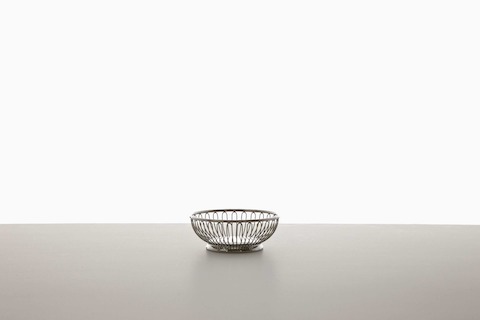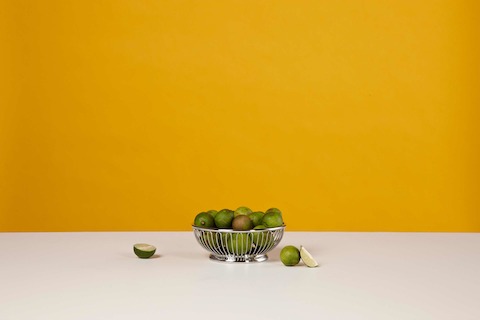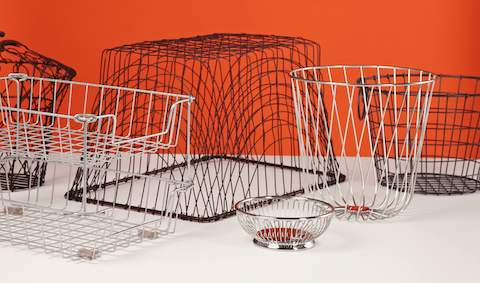We find metal baskets intriguing because they have the ability to create structure with very little mass. The manipulation of metal wire allows shape to be made from only the most necessary lines.
Perhaps this is why the humble grocery-shopping basket has changed so little since supermarkets were invented. Its lightness allows us to carry it easily, yet it is strong enough to support goods of various shapes and weight. The relationship between the basket and its contents is also intriguing. When filled, the gridded wire seemingly disappears—everything within is visible from all sides.
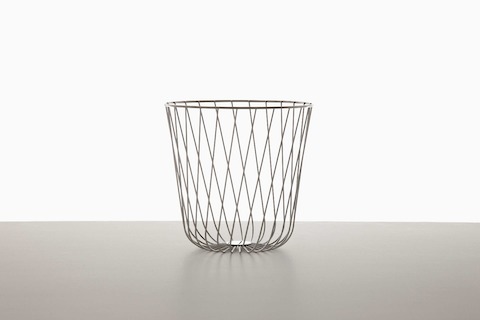

If you transfer this structural thought to furniture, the famous wire chairs by the Eameses and Bertoia celebrate a simple observation—with an economy of material a wire frame acts as a strong and graceful "container" for the human body. Of his seating, Bertoia once said, "...they are mainly made of air, like sculpture. Space passes right through them." In our opinion, the beauty and continuing relevance of these designs lies in the fact that—like supermarket baskets—they are transportable and resilient.

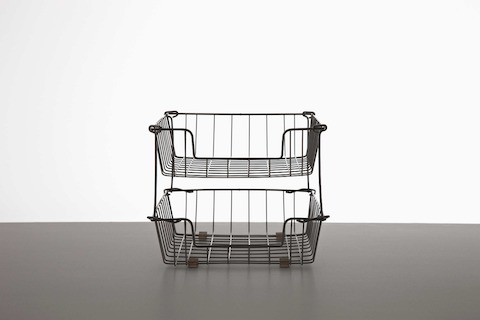
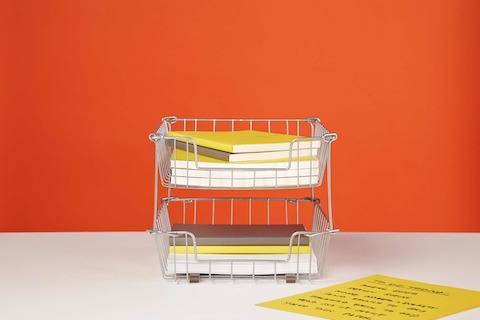
The Wireframe Sofa Group relies on these properties but adds another material dimension. Our basket contains carefully formed cushions that are movable yet stable. Each shape relates to nuances of the body and to sitting. The seat cushions are firm but soft for the bottom; the back cushions are low and forgiving for the head; and the arm cushions are resilient enough to support both arms and head. With a priority on comfort, the pieces are composed of many layers of foam in various densities.
In great contrast to the frame, the cushions promote softness for the eye. This is important because design and comfort are conditioned not just by what we feel, but also by what we see. Before we touch it, a pillow immediately transmits a sense of casualness to our brain. The opposite of a wire frame that imparts hardness, efficiency and utility. It’s a basket to hold soft cushions.

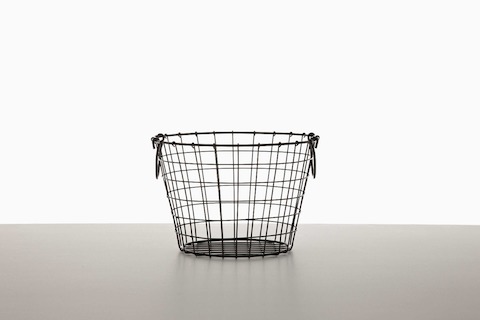
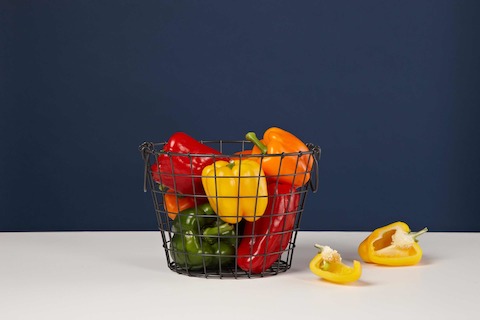
This combination of pillows and wire—a kind of casual utility—relates to a modern condition: Whether at home or in the office, furniture needs to work harder these days. It’s genuinely surprising when a sofa cannot be swung around to watch a movie through a projector; or be moved from one room to another, fitting easily through a standard door frame. We become disillusioned if a piece can’t be cleaned easily, or a cushion cannot be replaced or recovered. The conditions upon which we build our expectations must be met, above and beyond what a manufacturer might assume or a consumer might demand. That is part of our role as designers.
Modern living seems to rely on a balance of informality and structure, temporality and permanence. A lot like the humble wire basket.
